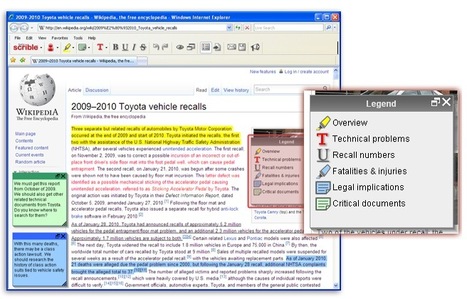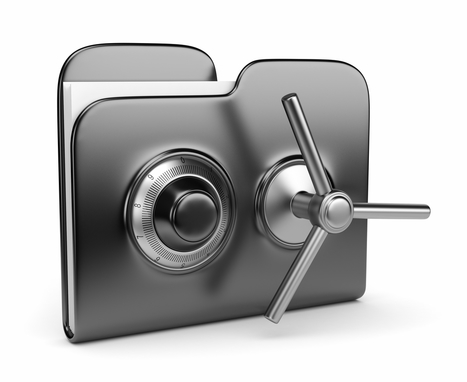scrible lets you highlight and annotate web pages and easily save, share and collaborate on your web research with others. Sign up for free!

|
Scooped by Robin Good |
Robin Good's insight:
Scribble is web-based app which allows you to save and archive any web page while being able to richly annotate it in multiple colors & styles.
Scribble indexes all of the web content you save and it allows you to search through it easily. The basic version which is free to anyone allows you to:
- Save web research online & access it from anywhere
- Use simple keywords to search full text of saved research
- Use tags to quickly and easily organize research by topic
- Easily share annotated web research with others via email
- Annotate, comment and highlight text in a variety of ways
Two editions are available right now:
a) Free - 125MB of storage
b) Student (free) which adds to the basic features:
- 250MB of storage +
- Capture citations and create bibliographies in a snap.
- Compile notes from multiple articles into summaries & reports.
- Collaborate with others by inviting them to Sharable Libraries.
My comment: An excellent tool for researchers, journalists and teachers who need to permanently save, organize, annotate and highlight different content coming from the web.
More info: http://www.scrible.com
Tour: https://www.scrible.com/tour
Plans: https://www.scrible.com/plans
Bookmarklet: https://www.scrible.com/bookmarklet



 Your new post is loading...
Your new post is loading...











I've always been wanting archive pages from the web to go back to again. Here is a way to help you do that.
Handig app om dingen die je op het web tegenkomt van aantekeningen te voorzien en te bewaren.
I haven't read this article but I'm seriously interested in the question implied in the title.....i.e. how to 'mark up' information and get them on the web. In many cases, I think that's adequate for most people's purpose.
I have yet to find a tool that I found really comfortable for doing that. Maybe this is it.